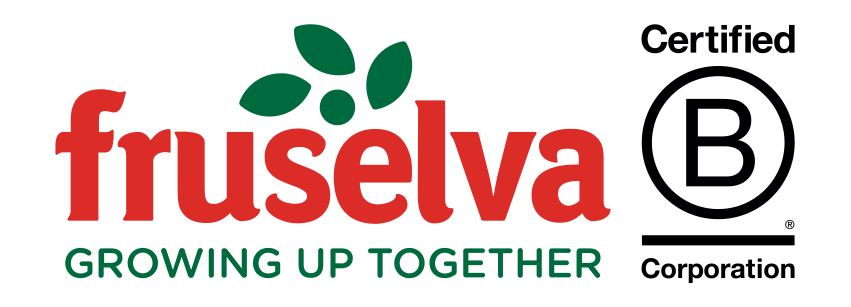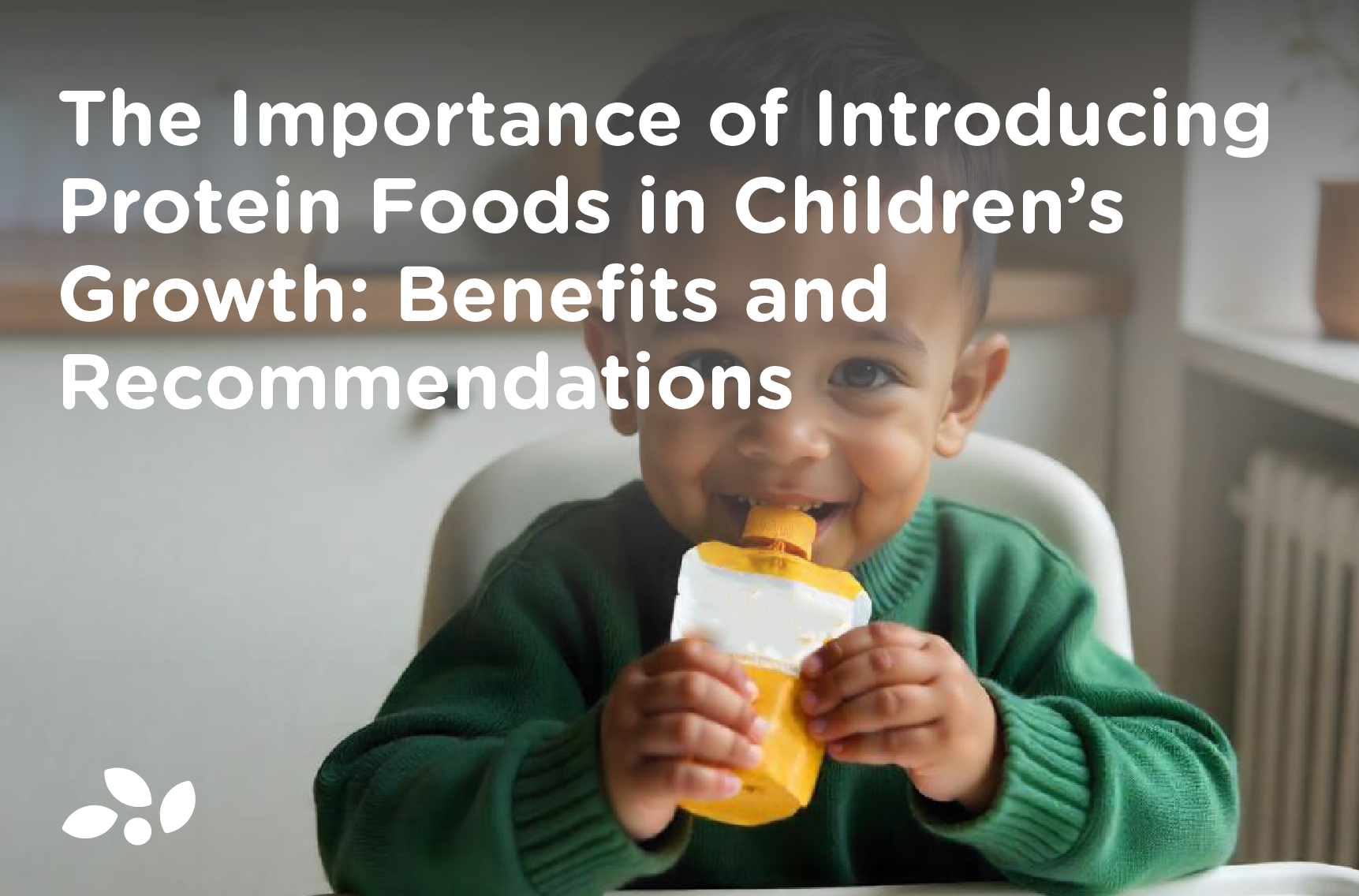Children’s growth and development is a complex process that requires adequate nutritional intake. Among the essential nutrients that play a crucial role during this stage are proteins. Proteins are fundamental for tissue development, the immune system, and the proper functioning of the body. However, the introduction of proteins into children’s diets must be done gradually and appropriately, especially in the early years when the body is in full growth mode.
In this article you will find the importance of introducing protein-rich foods into children’s diets, regarding the age at which these foods should be included according to European legislation, and how products like pouches (bags of pureed fruits, vegetables, cereals, yogurt, etc.) can be an effective consumption driver.
The Role of Proteins in Child Growth
Proteins are essential nutrients for the human body as they are the building blocks of cells, muscles, organs, and other tissues. During childhood, the body is in full formation, so proteins are needed in large amounts to ensure proper physical and mental development.
Protein plays several key roles in children’s bodies:
- Growth and development: Proteins contribute to muscle growth and the development of organs and tissues. This is crucial in childhood, when fundamental body structures are forming.
- Brain development: Proteins are also necessary for brain development. Specific amino acids that make up proteins are essential for cognitive function and learning.
- Immune system strengthening: Proteins are an essential part of the immune system, helping to protect the body from infections and diseases.
- Energy: While carbohydrates and fats are the primary energy sources, proteins can also be used as an energy source when necessary.
Recommended Age for Introducing Proteins in the Child’s Diet
According to guidelines established by European legislation and international health organizations, protein introduction should be done gradually and carefully as the child’s digestive system matures. Legislation in Europe, particularly through the European Food Safety Authority (EFSA), establishes the following recommendations:
- From 6 months: It is recommended to start introducing solid foods into a baby’s diet from six months. During this phase, animal proteins such as chicken, fish, and eggs, as well as legumes, can be introduced gradually. At this age, protein should primarily come from plant sources (such as pureed lentils or chickpeas) and well-cooked, mashed animal products to avoid any choking hazards.
- Between 6 and 12 months: During this period, children can begin to consume both animal and plant proteins, but in small amounts. Proteins should be offered in the form of purees or small portions that are easy to digest. At this age, it is important to avoid foods with high sodium content or unnecessary additives.
- From 12 to 24 months: During this age range, a wider variety of protein sources can be introduced, including lean meats, fish, eggs, and dairy products like yogurt and cheese. As the child grows, their digestive capacity improves, so a greater variety of foods can be introduced, always ensuring they are suitable for the child’s developmental stage.
- From 2 years onward: At this age, children can consume a full range of protein sources, including meats, fish, legumes, tofu, and dairy products. The amount of protein a child should consume depends on their age, sex, weight, and activity level, but generally, a preschool-aged child needs about 1.2 grams of protein per kilogram of body weight per day.
Why Choose Pouches with Protein for Children?
Pouches, which are small bags of pureed fruits, vegetables, cereals, and other healthy ingredients, have become popular as a convenient and attractive way to feed children, especially the younger ones. These products have proven to be an excellent way to introduce protein into children’s diets because:
- Convenience and accessibility: Pouches are easy to use, allowing parents to offer a nutritious meal even when they are out and about. They are also designed to be easy to digest and suitable for the child’s developmental stage.
- Combination of foods: Pouches can combine proteins with other essential nutrients such as vitamins, minerals, and fiber from fruits, vegetables, and cereals. This ensures a balanced and varied diet that promotes healthy growth and development.
- Portion control and safety: Pouches come in controlled portions, reducing the risk of overfeeding. They are also designed to minimize the risk of choking, as the foods are pureed and easy to consume.
- Encouraging healthy food consumption: By including proteins from healthy sources like yogurt or fortified cereals, pouches can help children develop a positive relationship with nutritious foods while enjoying pleasant flavors and smooth textures.
Conclusion
At Fruselva, we have always believed that the best option for consumption is fresh, natural foods, and that chewing them is the ideal way to introduce new flavours and textures. However, we understand that at times, such as when out of the house, children’s needs may be more complex. In these moments, pouches are an excellent tool. They don’t require refrigeration and can be taken anywhere, making them a practical, safe, and nutritious solution to ensure that little ones receive the protein and other essential nutrients, even when preparing a full meal at home isn’t possible.
Introducing protein-rich foods into children’s diets during the growth phase is essential to ensure proper physical, mental, and immune development. Protein plays a crucial role in tissue formation and immune function and is also important for brain health and cognitive development.
The recommended age to begin introducing proteins varies, but generally, experts suggest doing so gradually from six months, in line with European legislation. Using pouches with fruits, vegetables, cereals, and yogurt is an effective and practical way to introduce proteins into children’s diets, promoting the consumption of healthy foods and ensuring that children get the necessary nutrients for optimal growth.
At Fruselva, we continue to advocate for fresh, natural foods as the best option but recognize that pouches are a helpful and convenient tool in special situations. As parents and caregivers continue to seek convenient and nutritious options to feed their children, pouches represent an accessible and healthy solution that meets both the children’s needs and the demands of modern parents.



